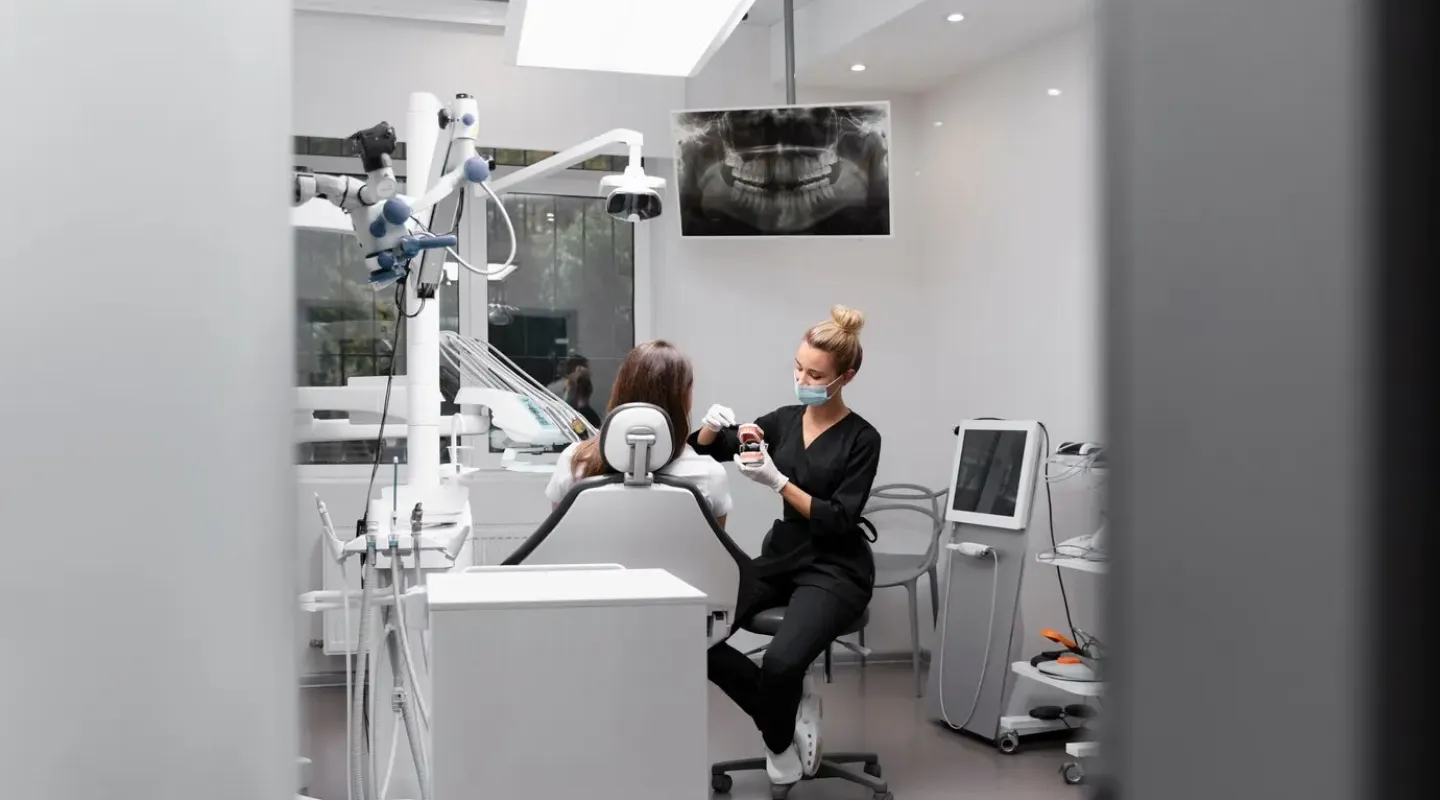
Implant Treatment
Implant treatment is a treatment method in which artificial tooth roots are placed in the jawbone to replace missing teeth. At Fimed Dental Clinic, we offer our patients the most advanced implant treatment options and provide aesthetic and functional solutions to replace missing teeth.
Advantages of Implant Treatment
Natural Appearance: Implants are dental restorations that have the closest appearance and feel to natural teeth.
Durability: Implants can be used for a lifetime with proper care.
Protecting Oral Health: It allows the replacement of missing teeth without damaging neighboring teeth. Since implants mimic tooth roots, they prevent the jawbone from melting.
Chewing and Speaking: Implants perform chewing and speaking functions like natural teeth.
Implant Treatment Process
Examination and Planning:
Your dentist performs a detailed examination to evaluate your oral health and the condition of your jawbone. Imaging methods such as X-ray and tomography are used to determine whether your jawbone is suitable for implant placement.
Implant Placement:
Implant placement is performed under local anesthesia. Your dentist places a titanium implant screw into the jawbone. After this procedure, it usually takes 3-6 months for the implant to fuse with the bone. During this process, the implant integrates with the bone and gains a solid structure.
Temporary Prosthesis Placement:
During the implant's fusion with the bone process, temporary prostheses can be used to meet the patient's aesthetic and functional needs.
Healing Process and Controls:
When the implant's fusion with the bone is complete, your dentist prepares a superstructure for the placement of the prosthesis. At this stage, an intermediate piece called the abutment is placed on the implant.
Permanent Prosthesis Placement:
A custom-made permanent prosthesis (crown, bridge or full denture) is placed on the abutment. Your dentist checks the suitability of the prosthesis and makes the necessary adjustments.
Types of Implants
Single Tooth Implants:
Implants used in cases of single tooth loss are completed with a single implant and a crown placed on top of the missing tooth.
Multiple Tooth Implants:
In cases where more than one tooth is missing, bridge dentures are placed on several implants. This is an effective solution for replacing more than one tooth.
Full Mouth Implants:
In cases where all teeth are missing, full dentures are made on implants placed in the upper and lower jaws. This method is a more comfortable and stable solution than removable dentures.
After Implant Treatment Care
Oral Hygiene: Brush your teeth at least twice a day and use dental floss. Pay attention to oral hygiene to keep the gums around the implants healthy.
Regular Check-ups: Schedule regular check-up appointments with your dentist. During these check-ups, the condition of the implants and your oral health are monitored.
Healthy Nutrition: Adopt healthy eating habits to ensure the longevity of implants. Avoid hard and sticky foods.